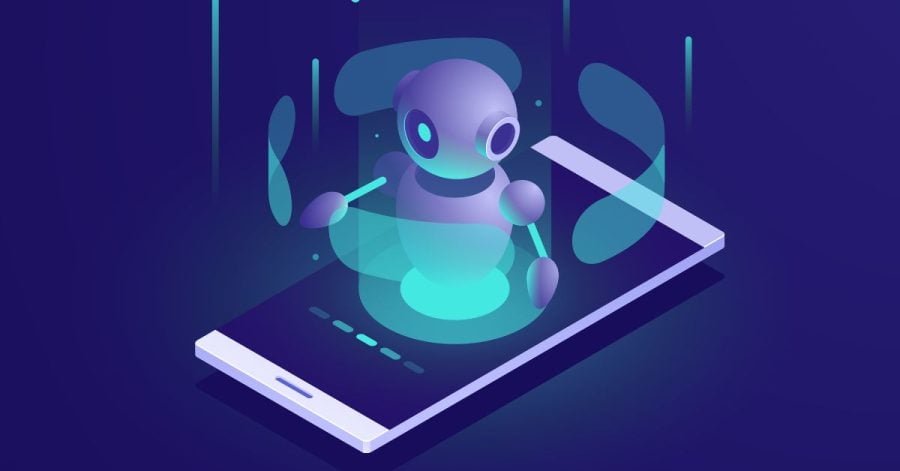Unlike people, chatbots don’t need breaks, vacations or salaries. They can be used 24/7 without any problems, take care of repetitive tasks, answer simple questions, and mimic human interaction to make the experience more enjoyable for the customer.
However, is all of this enough to replace human interaction and people working in the customer support industry? While these chatbots can’t fully replace people and the emotional value that human interaction has, they can be a great tool to help boost customer service, and also improve how people are communicating.
For Elitza Stoilova, CEO and co-founder of Umni.bg, the first Bulgarian AI platform for 24/7 customer support, chatbots and other software and platforms with conversational AI have the goal to remove the routine questions and tedious tasks from an employee’s life.
This affects how employees perform and can prove more beneficial for all parties – companies, employees, and customers. Additionally, the global chatbot market is expected to quadruple from $2.6 billion in 2019 to $9.4 billion in 2024.
“Employee performance optimization using conversational AI doesn’t only mean saving time and cost for the company, improving operations, and customer experience. It means the staff would do a much better job at the same time, which would be interesting and at the same time more motivating for their personal and professional growth,” Stoilova tells The Recursive.
In turn, this brings improvement of employees’ overall well being based on less stress, satisfaction from work and personal development, making them feel more valuable and important to the company and the customers, Stoilova adds.
CodeWell AI is a North Macedonia-based tech platform that enables the creation of digital assistants that can speak any language on a human level. According to its CEO and co-founder Nino Karas, using chatbots and AI assistants is like hiring and training someone to be “your best employee that can work 24/7 and can be cloned on demand”.
“One of the biggest benefits of technology has always been automation and improvement of mundane and boring tasks that people are not particularly interested in doing. In the same way, technology automated the job of human lift operators, Conversational AI can automate the jobs in departments that involve mass communication with end customers,” Karas from CodeWell tells The Recursive.
However, each AI chatbot level of accuracy depends on the efforts of the team behind it.
“Well trained AI chatbot can cover a huge range of customer questions, in some industries up to 80% of the FAQ. I am pretty sure that the advancement of the technology would soon lead to the possibility of an AI chatbot to have 100% accuracy on any topic asked by a customer,” Stoilova from Umni.BG says.
Not just a tech trend
According to Karas, the continuous development of chatbots and AI assistants isn’t just a tech trend, but rather a part of the inevitable tech evolution for companies in the customer service industry.
“Having in mind that customers are becoming more demanding than ever, with 7 out of 10 customers calling contact centers JUST because they want to be served. On the other hand, less and less people want to work in contact centers, resulting in a record high employee turnover of 45% annually. Because of this, we truly believe that creating an AI-powered workforce with Conversational AI represents the next step in the digitalization of companies,” the CEO of CodeWell explains.
But all of this is a work in progress. At the moment, most chatbots still have a low conversational capability, which is the sole reason why a lot of chatbot users worldwide leave after the fourth interaction and never come back, Karas explains, adding that CodeWell AI is trying to reverse this trend with its technology.
“CodeWell AI digital assistants are capable of understanding any language with a very high precision of over 95%, understanding dialects, and multiple letterings, recognizing the context of the conversation, to provide a conversational experience that is much closer to a real human being. We are currently in the development of the CodeWell AI Digital Assistant as a Service platform, which will allow banks and financial institutions to get a fully featured conversational banking assistant in just a single day,” he tells The Recursive.
In many cases, digital assistants can perform complex actions much faster than any human agent due to direct integrations with the core systems of the company. However, there are still flaws when it comes to reaching human level interaction.
“That being said, if the inquiry is complex in terms of length, many conditions, unrelated and not very clear intention, and full of unnecessary details, the AI fails to connect the dots and then a human agent is needed to step in and take over,” Karas says.
For Stoilova though, the biggest benefit with chatbots replacing humans is giving people back their time.
“If a chatbot or robot can do it, why would we need to have a human being in that position? I believe that replacing people from routine and mundane tasks and jobs would be great for people as finally we will get back our time, the most valuable resource we have, to use it for our personal benefit and to become better people,” Stoilova concludes.








